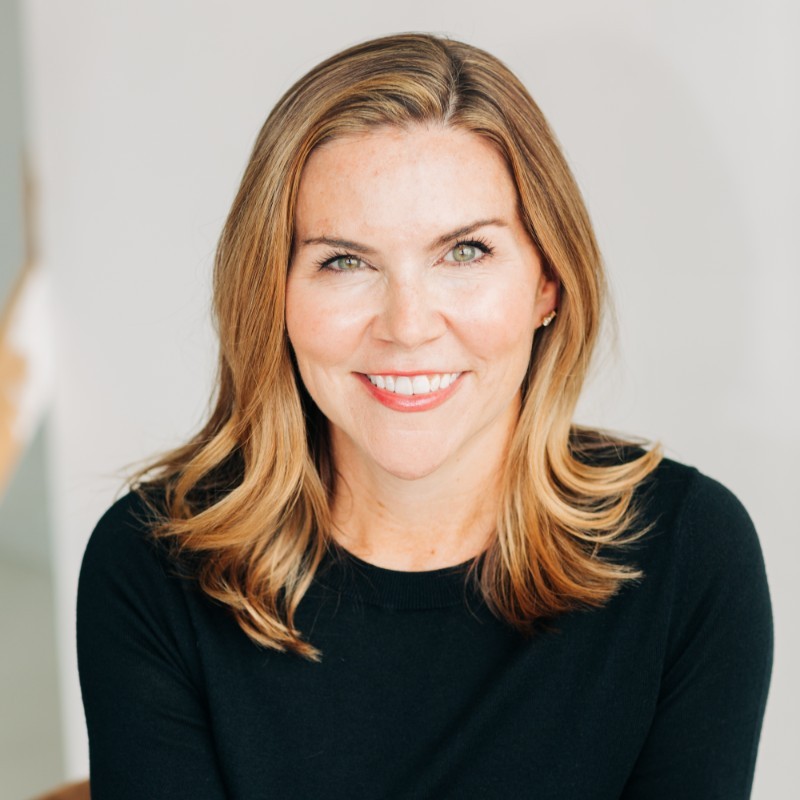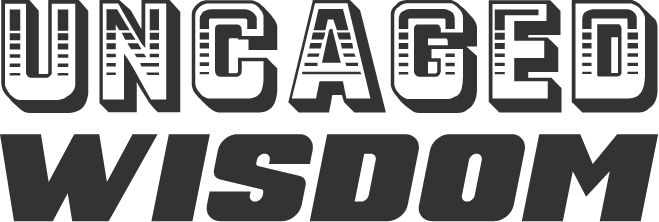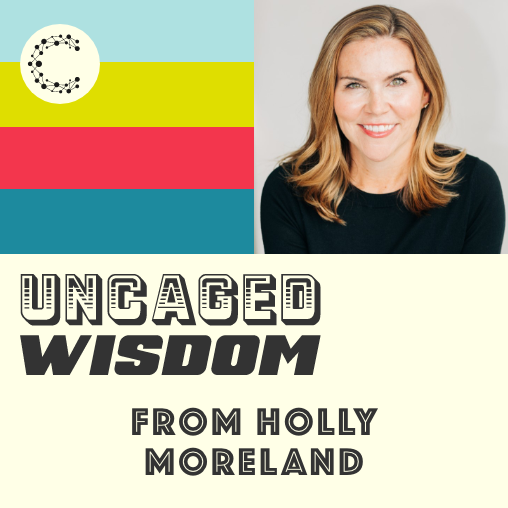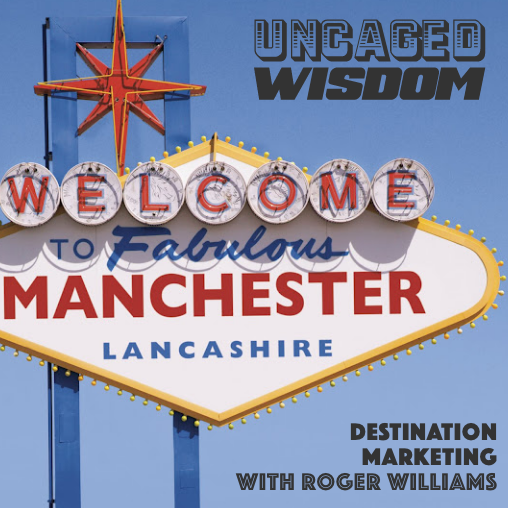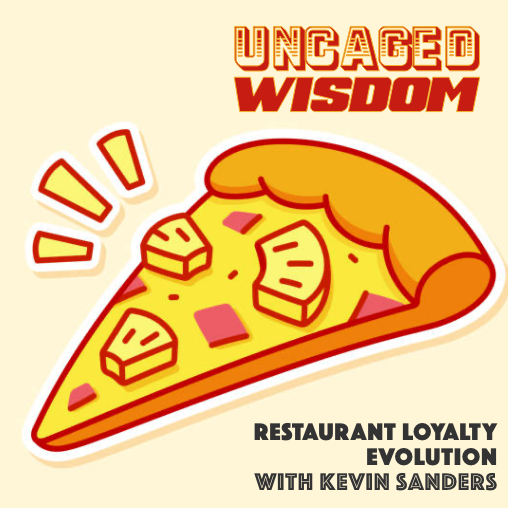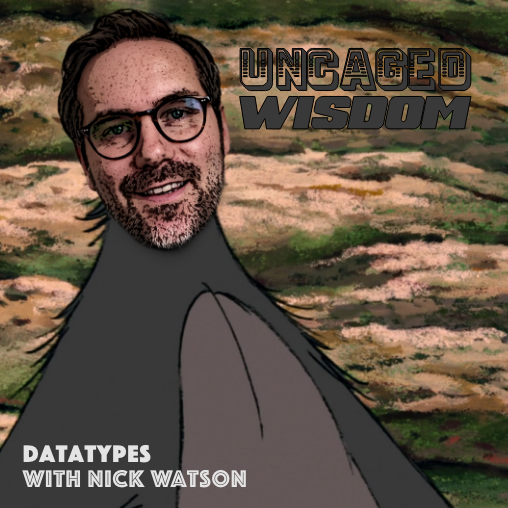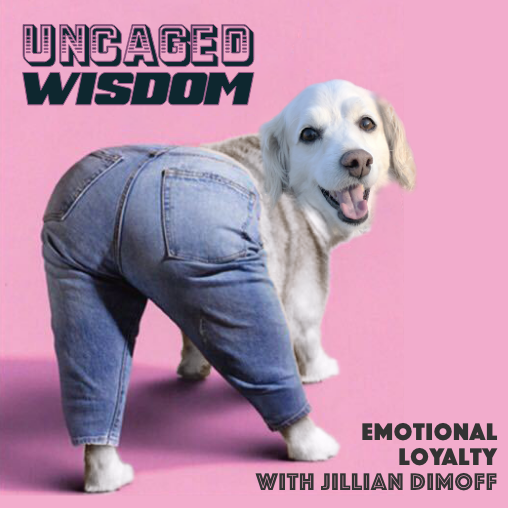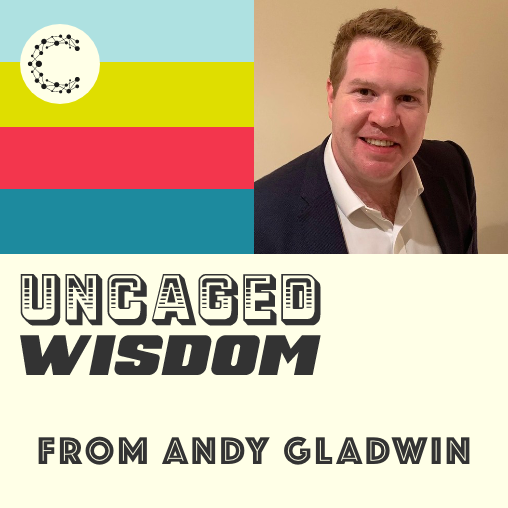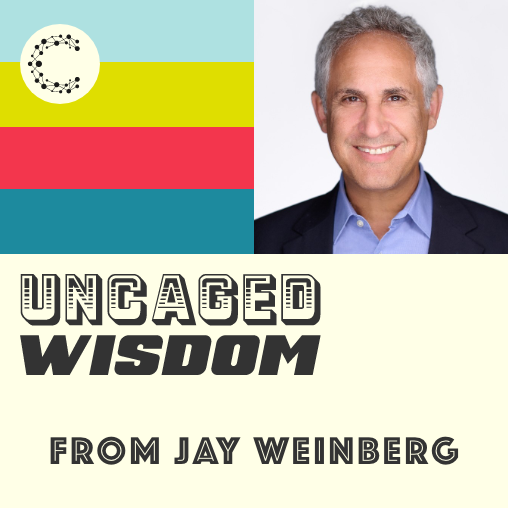Marketers in Travel & Hospitality w/ Holly Moreland
- 0.5
- 1
- 1.25
- 1.5
- 1.75
- 2
Julian: Thank you very much for joining us today. Just to kick us off in our wonderful chat around all things yourself and Hilton, could you please introduce yourself and the team that you are representing today and work for, and a little bit of the work that you guys do?
Holly Moreland: Sure thing. Thanks for having me. I am Holly Moreland. I currently lead the email and mobile marketing team for Hilton. We do all of the enterprise- level email communications globally, including transactional, as well as the dynamic push notifications that come from our Hilton app and the in- app interstitial messages. Since we support 26 languages and we have over 6, 000 properties globally, we lean really heavily on technology to help us stay efficient and focused and to actually accomplish everything that we do every day. It's also in our remit to always be looking at the platforms and the martech stack that supports all of that.
Julian: I do my homework on our guests. It's not stalking, it's homework, but you've had some tremendous experience in different brands before Hilton as well. Have you always been in the email marketing world?
Holly Moreland: Sure. Thank you for kind- stalking. Actually, I've been doing email for all of two years. It's not really my main background, which is why it's really interesting to have landed into this role, or kind of fallen into it. I have worked with Frito- Lay, Burger King, 7- Eleven, just to name a few. Because I actually come from the agency side, most of my career was agency- side, which provided me the opportunity to do everything from direct mail to promotional to CRM to broadcast. When I was at Wunderman in Chicago and working on Burger King is when I started to get a little more into the digital space, because we were running the kids' site for them. I started to cut my teeth on digital then, and that was several years ago. Frankly, I love the digital space, inclusive of email, mobile marketing, martech, all of it, just because it's ever- changing and there's always something new to learn. I start to geek out when we start talking about martech stuff, frankly,
Julian: There's a lot of very transferable skills from agency into digital. I guess the nice thing about working for the agency is you get the big- picture stuff, and then you can go into the details when you work with an individual brand on their side, especially when it comes to email, because you've seen how the sausage is made. I hate that phrase, but I've used it again.
Holly Moreland: It's funny. I was listening to a podcast yesterday that was also talking about how awful that phrase is, but everybody uses it because, I don't know, what else are you going to say? I do know how the mystery meat is made. I think it's an interesting thing about the transferable skills, because especially the first couple of years I was at Hilton and there would be times where people were in a frenzy over compressed timelines, things running behind schedule, all of that, I always thought, " Well, this is nothing compared to what you see agencies doing," so it's all relevant. I think especially over the past several months, being equipped with that ability to pivot around an uncertainty, which is just frankly day- to- day almost, agency- side, did definitely benefit me. I really hadn't thought to stop to think about that until you just brought that up, but yeah.
Julian: How do you describe the day- to- day, Holly? We've been phrasing this, when we talk about travel and hospitality, as that was the old day- to- day of pre- COVID- 19, and we to have to talk about that because it has impacted, and we'll get into that. With the team that you guys are on, it's the execution predominantly of the communication with customers or loyalty members?
Holly Moreland: As you said, definitely day- to- day business as usual is the execution of the campaigns that are coming in. That ranges from we have things that are always on, like our transactionals, like a reservation confirmation. You make a reservation... please go make a reservation... when you do, you would get reservation confirmation transactional. Those are always on. There's an element of either optimization of those, or frankly if something goes sideways, we need to jump in and troubleshoot immediately on them. There are also the triggers. We have a lot of life cycle triggers to achievement and things like that that are running browse abandon, and then they're all coupled with the workflow that is coming in from a marketing standpoint of the ad hoc requests, both for email and for mobile. On any given day, there's a lot of team orchestration of what is everyone working on. Inevitably there are fires every week, just like every place else, that you're going to have to jump in and pivot around and reprioritize what we're doing. On top of all of those is also that longer- term look and view which we actually had to set aside for a little bit with COVID, but now it is nice that we are back to looking at, " Okay, from an enhancement roadmap and the platform roadmap, from a capability standpoint, where do we need to be going? What teams do we need to be collaborating with in order to ensure that we're all aligned and tracking together?"
Kayla: For the next question, I just want to understand. What level of personalization are you guys trying to attempt, and has it changed at all during all of the pandemic?
Holly Moreland: Yeah. We always strive to be relevant above all else. Applying the lens of whatever the message is that we're sending, is it going to be helpful to our customers, or which customers is this going to be helpful to? Who needs to see this? Who's going to benefit from this? What do they need or want to hear from us? In concept, that hasn't changed. Now, what they need to hear, though, has definitely changed. For instance, we might know that you are saying you have an upcoming stay in New York City, and they have just adjusted their quarantine regulations. You may need to know about that, so we've got to swivel around pretty quickly to let you know about that. Or we know that people are starting get more comfortable with drive- distance trips, so we can use your location to serve up some ideas for locations that are in a certain radius. Life cycle, we may know you have a certain amount of points. I think that it's looking at what do we have that we know would be useful for folks. I think that conceptually, the lens is the same. It's relevancy, but what things are relevant right now, especially in travel, is very, very different than it was six months ago.
Kayla: With the fact that you're a global businesses, you touched on this a little bit, that every different area has different regulations, right? How are you guys managing understanding what the regulations are, for one, and then communicating to each specific region for your customers?
Holly Moreland: Yeah, that's probably been one of our biggest challenges, because it is so nuanced and it's so fluid. Luckily, we have platforms in place that allow us to react pretty quickly and comply. Things like translations, certain data points, are always what it comes down to in our ability to be able to keep up with what is now a really, really ever- changing and quickly- changing landscape. Do we have the information translated in a way that it can be effectively picked up and then distributed out to all the channels? Unfortunately, sometimes the answer was no, and we had to do some manual work towards that. I think that it definitely gave us a different lens on, when we look forward, prioritization of all of those things that can help us automate all of that definitely now is I think a larger priority than it was pre-COVID.
Julian: You've got so many countries and so many regions to manage. The consistent approaches to communication, is it predominantly email- based? Or during this time, have we looked to use some more push notifications where relevant or texts? It could just be an outsourced bundle, but how have you approached the best way to get to people during this time?
Holly Moreland: That's a great question, and we do rely on email pretty, pretty heavily, because for most countries, that's a pretty standard way to reach our guests. When you're making a reservation, you're going to provide an email address. The majority of our guests will be looking to their email to receive those communications now. You do have countries, of course, like China, super mobile- centric. A lot of times, we don't even have the right email address for those folks. Being able, to your point, to be able to either drive them to the app or get push notifications to alert them is really critical. What you touched on is also the need for us to be able to look regionally at how we're communicating and in what channels, and understanding that we may need to flex around that. I think historically we may not have done that as much as we do now, when it became all of a sudden very, very critical to get certain communication into the hands of guests that have stays coming up. I would say largely, we still do rely on email pretty heavily. It's a little easier for us to activate it quickly, for us to ensure that it gets translated and is sent out. More and more, we are looking to those mobile levers to also help, either given the region or just given consumer behavior. If we know that they tend to be really active in the app, we also want to layer in a push notification, so that we're reaching those folks that may not be in their emails as much.
Julian: What have you found successful when it comes to communicating with the content? Have you guys been working out what people are willing to read or are trying to read and engaging with, when it comes to materials? I think we've talked about potentially that loyalty updates were important to users. Have there been certain communication themes that have actually resonated with people?
Holly Moreland: Yeah, absolutely. Our transactional communications, even pre- COVID, they tend to have really high open rates, and people know that there's important information in there that they want to check, they want to verify. Those communications go to everyone, regardless of your marketability status. Those became even more critical touchpoints when we get into things like we have something urgent to tell you, but we need to give you a heads- up so that you are prepared once you arrive on property and that we can manage those expectations. Because as a hospitality company, the biggest challenge we have is exactly what you're saying. How do we manage guests' expectations in this time before they ever get to the property? Because what we don't want to have happen is a guest arrive on property and have a surprise, that something has been put in place, even from the mask policy. Helping them understand what cities or what regions are requiring masks and what aren't, so that they feel like they understand what's going to happen on property. Then also the CleanStay, and making sure that people also feel comfortable as they start to travel. The transactional communications for sure are just really, really critical in that path. Then the loyalty, when you mentioned our Honors Monthly Statement, is also another one. There were a lot of communications that we paused. When we had that initial surge from COVID and things started to shut down, there was a lot of uncertainty. We pulled back on our marketing and promotional messages, rightly so, because we wanted to make sure we were getting... did we understand what tone we should have, what messages should we be putting out? What I think a lot of companies went through was like, " What do we talk to people about and how," and trying to be really mindful and considerate about it. Honors Monthly Statement was one of the ones that we kept up, because our members wanted to understand. It's another vehicle that they know is coming from us, that they know has information that's really hyper- relevant to them because it's about their account, but that also served as a really important communication for things like when we were ensuring that their tier status was going to be extended and their points were going to be protected, so that they knew where they stood with Hilton and could have the comfort of, " Even though I can't travel, I am being taken care of." At least if that was a source of stress for them, they could let go of that. I would say transactional and, yeah, the life cycle member communications were critical.
Julian: Hilton is one of the most trusted and we all enjoy interacting with the brand, and concerning what you guys have been doing, it's keeping the relationship going with the messaging approach you've had. Because it's very hard to know what the new normal will be, but there will be a new normal. It's pointless to try to predict it, but there will be something that goes after this, and people will start to do normal- ish things again. It's making sure that you're just still there and doing it in a way that it's not ham- fisted, it's natural, but being aware and making sure that the messages you're putting out there are the things that people want to hear or want to understand. That was more of a statement than a question, but yes.
Holly Moreland: Yeah. It was a very nice statement, though.
Julian: Yeah. I was going on. I'm feeling quite whimsical today. The sun's back out in New York, but yeah. Kudos on just keeping relationships going, because I think that's one of the things we've been seeing when people are doing it right. It's a little sliver of normality.
Holly Moreland: Yes. It's tricky when the main way you usually have a relationship with people is through them doing something that they can no longer do, in large part just temporarily. On top of keeping up with the regulations, the marketing aspect of how do you as a travel company keep a relationship with folks when they can't travel has been tricky to navigate. I appreciate that at least you think that we've done a good job.
Julian: I'm the litmus test. That's what people were coming to talk to me about. Holly, the final on this is we recently talked to Cayman Airlines, met a nice chap called Overton there. We were discussing the different business types that they've had to pivot on, on who were flying with them. They typically have a mixture of domestic travel, because they're the air bridge between the three islands, and then there's the international travel. With Hilton, I guess the two impacts that you had is there's a holiday or vacation section but there's also a huge business section, because people like ourselves would normally be doing this hopefully in person, and seeing you and staying at a Hilton. Has that impacted the messaging or the approach you've had to take, or is it such a universal thing, COVID, you've just gone, " Well, no, we'll stick to one particular tonal message to these different groups"?
Holly Moreland: Yeah. It's for sure impacted us. We're seeing similar things, that leisure travel is really what is coming back first. I think you're, understandably so, seeing a lot of companies being a bit more conservative around sending their folks around to travel, or having the teeny budgets, and that may take a little bit longer to return. What we do see is human beings are craving connection. Also, I think everyone has a little bit of that cabin fever also going on. I would love out of these four walls, maybe out of my city. Normally, folks have traveled, done a little bit of getting out and about a little bit more than they have. With those two things, we have seen more leisure travel, and in hospitality, we have the benefit of people can drive to get to our locations. We don't have to rely on air travel. I think we are for sure going to... we see more leisure coming back. That's a very different tone than business, like you said. Same with group travel, right? As far as you having big events, conferences, it's going to be a while before that comes back. What we do know is that we are human beings and the human connection, both personally but also in business, is a very real thing that we think people will be returning to. It's going to look different and we don't know what that's going to look like, but we know it will come back.
Kayla: You guys have done a lot of changes because of COVID. It sounds like you guys are doing an amazing job. Have you done anything that you feel like you're going to implement long- term, or even might shape how you guys look at the business moving forward?
Holly Moreland: 100%. There's a few layers there. One layer is if we just think operationally, and some of the stuff I've already touched on about, okay, there's things that we do that we're doing manually right now that are super hard and gross, and we need to change that and get them to be more automated. Because the next time something like this happens, where we have to pivot around really quickly from a communication standpoint, are we equipped to do that and to be as nimble as we need to be? I think also, culturally it changed us a bit. We're a large, a really large company. We would talk a lot about being really focused and ruthless prioritization, but I think the experience of COVID in the past six months made us really actually heed those words. We had to become very, very laser- focused and very, very aligned. We had to have extremely clear communication so that we could move quickly. The result is a much more agile approach and aligned approach, versus where we were even six months ago. I don't know that that kind of culture shift would have ever happened as quickly had we not been through what we've just been through. Then, yeah, I think from a recovery standpoint, things that may have been goals and priorities pre- COVID, now we're looking at things with a very different lens and probably, again, a more focused lens. It's like, " Do we really need that? Is it actually going to help the business? Is it going to take us where we need to go? Is it going to be serving our guests in a way that is beneficial?" I think that it has also caused some goal and objective realignment among leadership as well. We definitely have a renewed momentum despite the difficult circumstances, which is really interesting.
Kayla: Yeah, that is. This is marketing- related but also business- related. How is the team doing in terms of staying connected, because I'm assuming that everyone's working remote, right? You guys are doing so much right now, and you guys are a global organization. You have a ton of different businesses within you. How is everyone collaborating within the organization, and keeping working together versus siloed or independently?
Holly Moreland: We do a lot of this. We're on camera all day long with each other. I think it's interesting. Before, people were a little hesitant to take on the video call. Everyone would be like, " Oh, I don't want to turn on my camera." Now, by default, my camera lens is always open. There was definitely an immediate step towards that. What it changes is those hallway conversations too, that you used to have, just have become IM chats or people being open to like, " Can I just call you on here real quick?" The other thing we're trying to do is spend some time in our weekly team meetings, for instance, with some fluff. We might throw out a question of the week, and just to make sure it's not all work either. Because I think the thing that's hard about the virtual format is you have a natural inclination to just jump on and get straight into the meeting, versus when you were in person, there would usually be what we call a little bit of fluff at the beginning, and some personal just chit- chat. Trying hard not to lose that, because that's where you also can stay a little more connected or feel a little bit more of a personal connection.
Julian: Yeah. I'm chief fluffer.
Holly Moreland: I love a good fluff inaudible.
Kayla: You can borrow Julian whenever you want for the entertainment purposes.
Julian: You already mentioned that, so yeah, there'll be changes from this as well. Have you reached the stage where the team you're in, you've gone past the crazy, having to get everything done and pivot all the time, to actually having a little bit of time put aside to start to think about either improving things long- term, or just actually where's this going to go and how we can start planning? As we all know, we can't predict, but we can start planning. Have you reached a point where you actually do have a bit of head space to start doing that now?
Holly Moreland: Yes, and it's so refreshing, to sit and start to talk about things like route maps again, and slating things into or Q2 for next year and working that side of your brain, versus just having to be very present in the moment to deal with what was going on. We have started definitely planning for next year, having discussions around where... there's obviously resource discussions, but then also just longer- term than that, where do we need to plot things out. Again, I think that this whole experience has definitely shifted what those look like, but we have gotten back to, " Okay, when we're ready to, certain enhancements." Our dev resources are working on things. Then also, just going back to the marketing thing, when do we think that it's the right time to start introducing some of the marketing messages that maybe we had done before even the COVID response, a memories campaign. It's, I think, in a really nice tone, of, " When you're ready to make memories again, we're here for you, because that's what Hilton does."
Kayla: You were just talking about customer engagement and making sure that there's that emotional connection. How are you guys collecting feedback on how you're handling this situation? Then if you do get any feedback in terms of what people are looking for, what is the process there in order to react to that or improve?
Holly Moreland: We have a few different avenues, thankfully, that we can use to gauge what our consumer sentiment is. We have direct feedback, right? We've bought the call center. Of course, they're getting constant feedback in real time. We have different survey services. There's one that's an on- property survey. There's one that just goes out to members via the email in digital ways to gain sentiment. Then of course we were keeping tabs on things like FlyerTalk is huge for feedback. When we're making program shifts, we always watch FlyerTalk and also just the social channels, to listen on what is general sentiment coming in from there. Then as far as what people are searching for, we can look no further than our own sites and our app, and just to understand what are people looking for and what kind of patterns can we glean from that, because that gives us a very real indicator of what is the comfort level right now, what are people looking for, and gives us some direction.
Julian: The final one for me, believe it or not... and this is more for putting slightly the Cheetah hat on Holly... but just with you guys having to be so nimble and having to do a lot of work to get a lot of communications out there, have Cheetah supported you guys well enough in terms of either services led or actually just providing a technology that has meant that, although there's a lot of stress of putting all the different big things in place, at least you have the right tools to do it whilst you're dealing with everything else?
Holly Moreland: Yeah. Similar to what I said in the intro, that being as large as we are, our platforms and the technology that supports that is critical. Of course, Cheetah is a big piece of that for our channel, for both email and the mobile push. Cheetah has been great with being there, be it whether or not we have support issues that we need handled right away, always being very responsive, but also just helping us with initiatives that we have or things that we want to accomplish. What do we have either in the existing tools that we have that we could use, or what are possibilities? When I talk about the roadmapping, of course a piece of that is also are there components within the Cheetah Digital space that we also may need to look to to solve some of our future enhancements? Yeah, the Cheetah team's been great, and to us was just an extension of our team during all of this.
Julian: Okay. Always good to check in and see, just to make sure they're still on their toes. Thank you so much, Holly. You've given us so much good stuff, so we really appreciate you.
Holly Moreland: This has been great as always. I appreciate you guys inviting me here to chat, and I hope that everybody goes and stays Hilton when you can.
Kayla: Right.
DESCRIPTION
In this episode of Uncaged Wisdom, we’re joined by Holly Moorland - Director, Customer Engagement Platforms & MarTech, at Hilton Hotels. Holly recently joined us on the recent Travel & Hospitality Industry Panel we hosted at Signals 20.
Topics include;
- How has Hilton approached communicating with its customers, guests, and loyalty members during these challenging times?
- What level of Personalization does Hilton attempt, and has this changed due to the types of communications being sent?
- Have there been any specific lessons from handling the COVID-19 crisis that Hilton can implement long term?
For anyone who hasn’t listened to ‘How Marketers in Travel & Hospitality are Taking on an Unpredictable Year and Beyond,’ it can be found below:
https://www.cheetahdigital.com/signals/travel-hospitality-industry-marketers-digital-strategy
In this episode, hear Holly’s full, pre-panel chat with Julian and Kayla.
Today's Guests
